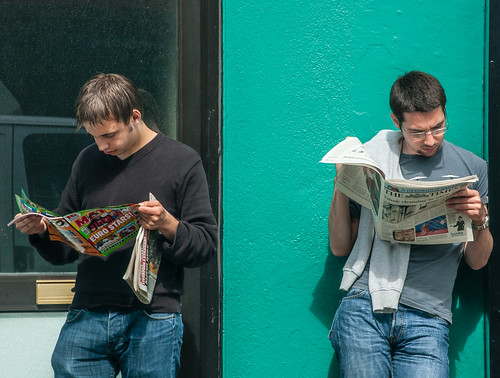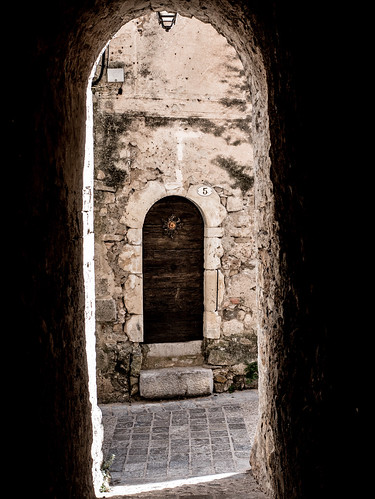From nearly a decade ago.
From the category archives:
Academia
“As soon as Trump became a serious contender for the presidency, journalists and historians began analogizing him to Hitler. Even the formulator of Godwin’s Law, which was meant to put a check on the reductio ad Hitlerum, said: ‘Go ahead and refer to Hitler when you talk about Trump.’ After Trump’s election, the comparisons mounted, for understandable reasons.
Thanks to the Crooked Timber bloggers for this opportunity! I’m very excited to be joining the group!
I just finished reading the twentieth anniversary edition of Why Are All the Black Kids Sitting Together in the Cafeteria?, a 2017 update to the 1997 book by Beverly Daniel Tatum about racial identity development. Tatum begins the long and excellent prologue to the new edition with the question: Are things getting better? In reading the prologue, one gets the sense that the answer is quite clearly that they are not, and indeed, Tatum confirms this at the end of the book:
“As I was writing the prologue for the twentieth-anniversary edition of this book, I was struck by how much bad news there was in it. The events of the last two decades have done little to improve the quality of life for those most negatively impacted by the structural racism of our society. Recognizing and acknowledging the persistence of residential and school segregation; the economic inequality that grows from limited access to socioeconomically diverse social networks and high-quality education as well as continued discrimination in the workplace; and the stranglehold of mass incarceration, unequal justice, and growing voter disenfranchisement left me feeling disheartened. But I am an optimist by nature and I have lived long enough to know that meaningful change is possible. I was determined not to give in to a sense of despair but rather to actively seek out signs of hope—stories of people making a difference and promising practices that could move others to meaningful action. I found that these signs of hope are everywhere” (343).
Tatum goes on, in the epilogue, to “share some of what I found in hopes that the examples will uplift you as they uplifted me” (343).
Tatum’s stories are uplifting. But they don’t make me feel optimistic about the future. Some are about local initiatives like the Atlanta Friendship Initiative or the Community Coalition on Race in the towns of South Orange and Maplewood, New Jersey. Most are about things taking place on elite and liberal arts college campuses. But if Tatum is right, in the rest of her book, about how our racial identities form and when, developmentally, things begin to go wrong (spoiler alert: childhood and adolescence matter, a lot), then I don’t see why isolated anti-racist efforts of the type that she catalogues should give us much hope.
I’ve written here before about the research I’ve been developing on ‘limitarianism’ – the view that we put upper limits or caps on how much of some valuable resource people can have or use. One thing that struck me when giving talks about limitarianism of financial resources/wealth, is that there’s always someone in the audience shouting: “Give me a number!” If the claim is that there should be an upper limit to how much income and wealth someone can have, people want to know what those limits are. Also, I’ve noted that whether or not someone finds the financial limitarian view plausible depends, among other things, on where exactly that ceiling would be put.
One question one could ask, is whether within a political community, there is something of a shared view (or dominant view), of where that ceiling should be (assuming people hold that there should be such a ceiling in the first place, obviously). So I decided to team up with a colleague from economic sociology who has ample experience with conducting surveys, and try to measure, among the Dutch population, whether they hold the view that there should be an upper limit to wealth, and if so, where they would put the cut-off line between ‘rich’ and ‘extremely rich’. Is there a level of material affluence at which we find that people are having not just a lot, but too much? [click to continue…]
A question for the political theorists, intellectual historians, and maybe public law/con law experts. The question comes at the very end of this post. Forgive the build-up. And the potted history: I’m writing fast because I’m hard at work on this Clarence Thomas book and am briefly interrupting that work in order to get a reading list.
In the second half of the 1980s, Clarence Thomas is being groomed for a position on the Supreme Court, or senses that he’s being groomed. He’s the head of the EEOC in the Reagan Administration and decides to beef up on his reading in political theory, constitutional law, and American history. He hires two Straussians—Ken Masugi and John Marini—to his staff on the EEOC. Their assignment is to give him a reading list, which they do and which he reads, and to serve as tutors and conversation partners in all things intellectual, which also they do.
These are West Coast Straussians. Both Masugi and Marini hail from the Claremont orbit in California (Masugi was in the think tank, Marino was a student). Unlike the East Coast Straussians—the Blooms and Pangles, who champion a Nietzschean Strauss who’s overtly celebratory of the American Founding but is secretly critical of natural law, natural rights, and the Framers—these West Coast Straussians follow Harry Jaffa, arguing that the American Founding is the consummation of ancient virtue in a modern idiom.
But what’s also true of these West Coast Straussians is that they are intensely interested in race. Jaffa’s great work is on Lincoln’s battle with Stephen Douglas over the question of slavery, and many of the West Coast Straussians dedicate themselves, in the 1970s and 1980s, to developing a view of the Constitution that, while acknowledging its embeddedness in slavery, nevertheless sees it as being redeemed by the egalitarian promise and natural rights philosophy of the Declaration of Independence.
This, of course, is an old struggle in American constitutionalism. Figures like William Lloyd Garrison and Wendell Phillips saw the Constitution as inherently a pro-slavery document (ironically, agreeing with Chief Justice Roger Taney); Garrison said it was “dripping…with human blood.” Figures like Lincoln, Charles Sumner, and the later Frederick Douglass dissented from that view, seeing the possibilities of an anti-slavery Constitution.
The West Coast Straussians take up the latter view. Interestingly, many of them are at the forefront, in the academy (or at least among white political scientists), of introducing African-American thinkers—Douglass, DuBois, King, even Malcolm X—to the canon of American political thought.Consider, for example, this classic anthology from 1970, though as Jason Frank pointed out to me on Facebook, it’s edited by Herbert Storing, who wasn’t a West Coast Straussian. I’ve heard from not a few political scientists who got their undergraduate degrees or PhDs in the 1960s and 1970s that their first encounter with African-American political thought was in the classroom of one of these Straussians.
So these are Thomas’s tutors in the late 1980s. They lead Thomas to a natural law interpretation of the Constitution, in which the various passages of the Constitution should be interpreted (redeemed) by the egalitarian promise of the Declaration of Independence.
This, needless to say, is a somewhat heterodox view, not just on the left but also on the right. It gets Thomas into a lot of hot water during his Senate confirmation hearings—before the revelations of Anita Hill—as Joe Biden, chair of the Judiciary Committee, grills Thomas on his view that a strict defense of property rights, for example, is justified not so much by the literal words of the constitutional text but by the natural law philosophy that is said to inspire the text. (Political theory folks will be excited to learn that Thomas’s citing of Steve Macedo in various speeches plays a critical role in these contretemps. Biden thought he had Thomas in a gotcha, but it turned out to be a gotcha for Biden. But that’s another story for another day.)
Up until this weekend, I hadn’t planned to do much with this natural law moment in Thomas’s development. For the simple reason that once he’s on the Court, I see little evidence of its presence in his opinions. Despite what some scholars have claimed, I don’t find many references to natural law thinking in Thomas’s judgments, and I don’t think the real action of his opinions lies anywhere near that.
But a conversation with my friend Seth Ackerman convinced me that I should deal with this moment in my book. Not because it has any lasting impact on Thomas’s jurisprudence but for two other reasons.
First, because it shows that Thomas’s first sustained engagement with constitutional law, after law school, is motivated/inspired/animated by a single, solitary question: How is it possible to reconcile a document that is so imbricated with the institution of slavery with a fidelity to that document? From the very get-go, the most important, most pressing issue for Thomas, when it comes to the Constitution, is the question of race and slavery. Needless to say, there aren’t many recent Supreme Court justices one can say that about.
What the natural law episode reveals is precisely what Thomas told Biden during his confirmation hearings:
My purpose [in resorting to natural law] was this….You and I are sitting here in Washington, D.C., with Abraham Lincoln or with Frederick Douglass, and from a theory, how do we get out of slavery? There is no constitutional amendment. There is no provision in the Constitution. But by what theory? Repeatedly Lincoln referred to the notion that all men are created equal. And that was my attraction to, or beginning of my attraction to this approach.
Second, Thomas had two sustained periods of engagement with conservative thought. The first was in the mid 1970s, when he read Thomas Sowell’s Race and Economics, and became fascinated with the question of slavery, capitalism, and black freedom. The impact of that moment over time was made evident two decades later, in a fascinating profile Jeffrey Rosen wrote for The New Yorker, in which Thomas recounted for Rosen his intimate knowledge of books like Roll, Jordan, Roll and Time on the Cross, which are classics of the debate around the relationship between slavery and capitalism. The second was in the late 1980s, in these tutorials with the West Coast Straussians.
What’s common in both moments is the presence and centrality of slavery and race. In both instances, Thomas’s engagement with the right is entirely refracted through the question of race.
And so at last we come to my question: What are the best works (articles or books) on the salience of the race question (particularly the relationship between slavery and the Constitution) in the work of these West Coast Straussians? Feel free to answer in the comments or email me at corey.robin@gmail.com.
It’s still dark out but I hear my 8 year old nephew stirring in the next room. Christmas is about to get real. Merry X-Mas to you and yours!
I’m glad I’m not a journalist. I don’t think I could handle the whiplash of the ever-changing story line, the way a grand historical narrative gets revised, day to day, the way it seems to change, week to week, often on a dime. Or a $1.5 trillion tax cut.
In my Guardian digest this week, I deal with the media’s memory, taxes, the state of the GOP, judges, sexual harassment, and leave you at the end with my assessment of where we are.
Here’s a preview:
Last week, after the victory of Democrat Doug Jones in Alabama’s senatorial election, the media began reporting that the Republican party was facing an epic disaster. Citing insider talk of a “political earthquake” and a “party in turmoil,” the Washington Post anticipated a Democratic takeover of Congress in 2018.
A year that began with dark premonitions of a fascist seizure of power, an autocrat’s total control of the state, seemed ready to end with sunny predictions of the Republican party losing one branch of the federal government to the opposition and a stalled right-wing agenda in Congress.
One week later, after the victory of the Republican tax cut, the media has changed its tune.
…
Like Trump, George W Bush lost the popular vote in 2000. Unlike Trump, Bush only won the Electoral College because of the US supreme court. Despite that added spice of illegitimacy, despite having smaller majorities in both houses of Congress (razor-thin in the Senate, almost razor-thin in the House), Bush still managed to push through massive tax cuts – and, unlike Trump, got 40 Democrats to vote with him. A full six months sooner than Trump did.
Cutting taxes is in the Republican DNA. Even an idiot can do it.
…
So that’s how we end 2017: on the one hand, a declining movement of the right, increasingly unpopular with the voters, trying to claim a long-term hold on power through the least democratic branch of government.
On the other hand, a rising movement of women and the left, trying to topple ancient and middle-aged injustices, one nasty man at a time.
You can continue reading here.
In the tread following the announcement of my book, I had a brief discussion with our reader ccc about the fact that my book doesn’t engage with non-human animals. In their second comment, ccc wrote the following:
Political philosophy in general has a big problem though. It seems most authors can find some perfectly non-malicious, workload-related reason for giving non-human animals the excluded-via-footnote treatment. But the aggregate effect of all such cases is ongoing marginalization of the topic of non-humans from political philosophy. (The near complete absence of that topic on Crooked Timber over the years is a good illustration.)
Gladly there are some signs of (slow) change now, thanks in part to the “political turn” in animal ethics pioneered by among others Will Kymlicka and Sue Donaldson.
This type of critique is not specific to political philosophy, and should be taken seriously, so let’s discuss it outside the context of that particular book. [click to continue…]
My weekly digest for The Guardian, looking back on Tuesday’s Senate election in Alabama with the help of Brecht and Weill, Sheldon Wolin, Matt Bruenig, and Eddie Glaude.
Some excerpts:
Since Tuesday’s Senate election in Alabama, when the mild centrist Doug Jones defeated the menacing racist Roy Moore, social media has been spinning two tunes. Politicians tweeted Lynyrd Skyrnyrd’s Sweet Home, Alabama. Historians tweeted the 1934 classic Stars Fell on Alabama.
My mind’s been drifting to The Alabama Song. Not the obvious reference from The Doors/Bowie version – “Oh, show us the way to the next little girl” – but two other lines that recur throughout the song: “We now must say goodbye … I tell you we must die.”
It’s a lyric for the left, which can’t seem to let go of its sense of defeat, even when the right loses.
…
After every defeat of the right, after every poll shows dangerously low approval ratings for Trump or the Republican, I hear the same response from the left, especially on social media: what about the minority of voters who still support the right? How can they do it? What is wrong with them?
Even though Tuesday’s election showed signs of a fairly large switch in the white vote of Alabama, from red to blue, even though 24% of the American people approved of Richard Nixon the day he resigned – eight points lower, incidentally, than Trump’s current approval rating – the left can’t let go of the voters who remain committed to Trumpism. Even when the candidates of those voters lose major statewide elections twice in a row. In southern states.
But the left doesn’t need to convince every last Republican of the error of their ways. It doesn’t need to put all Republican voters in the public square, forcing them to recant their beliefs. It doesn’t need Christian suasion, encouraging rightwingers to apologize and confess their sins.
In an electoral democracy, the way to break your opponents – especially opponents like these – is to demoralize them, to make them feel they are a small and isolated minority, that their cause is a loser.
On election day, the left needs to convince the right – not through voter suppression or intimidation but through rhetoric and speech – that their movement is going nowhere, so they shouldn’t either. That’s exactly what happened in Alabama, where “the biggest reason for the shift” in counties that voted for Trump last November going for Jones this December is that “GOP voters stayed home”, according to MCIMaps.
…
What black voters, particularly black women, have gotten instead is a lot of thank-yous. From liberals and Democrats, on Twitter and Facebook: thank you, black people, for saving “us” or America or democracy from “ourselves”.
It’s a weird move, with weird overtones. Rather than treating black people as political agents in their own right, acting in their own interest, rather than viewing black people as part of an inclusive movement of the left, the thank-you-note writers treat African Americans as if they were the indispensable helpmates of an addled white upper-middle class, a class that’s too harried, busy, or distracted to deal with the hassle of everyday life, the drudgery of daily upkeep, the housekeeping of democracy.
 So, folks, here it is, my book on the capability approach that has been in the works for a very long time. I’m very happy that it is finally published, I am happy that you can download the PDF for free at the publisher’s website, and that the paperback version is also about half the price of what a book with a university press would cost (and a fraction of the price it would cost if published by one of the supercommercial academic presses whose names shall not be mentioned here).
So, folks, here it is, my book on the capability approach that has been in the works for a very long time. I’m very happy that it is finally published, I am happy that you can download the PDF for free at the publisher’s website, and that the paperback version is also about half the price of what a book with a university press would cost (and a fraction of the price it would cost if published by one of the supercommercial academic presses whose names shall not be mentioned here).
I am not going to sell you my book – in a literal sense there is no need to sell you anything since you can download the book (as a PDF) for free from Open Books Publishers’ website (and I have no material interest in selling you hardcopies since I will not receive any royalties). And in a non-literal sense I should not sell this book either, since it is not up to me to judge the quality of the book. So I’ll only make three meta-comments. [click to continue…]
Back in early January, I wrote:
Where all this will lead is anyone’s guess, but the most likely outcome is that Trump and the GOP will fall back on what Republicans know how to do best: tax cuts and deregulation.
It’s about to come to pass.
Schumpeter famously said that taxes are the “thunder of world history.” So what kind of history are the Republicans about to make?
Here I am in The Guardian, answering that question with four takeaways on the GOP tax bill.
Meanwhile, I just stumbled on this from last year: Paul Ryan, at CPAC, asking us to “take Obamacare—not literally, but figuratively.”
Never underestimate the philosophical impulse of the right.
Next he’ll be incanting, “A commodity appears, at first sight, a very trivial thing, and easily understood. Its analysis shows that it is, in reality, a very queer thing, abounding in metaphysical subtleties and theological niceties.”
Read the rest of Ryan’s comments where he criticizes school lunch programs: fills the stomach, empties the soul.




